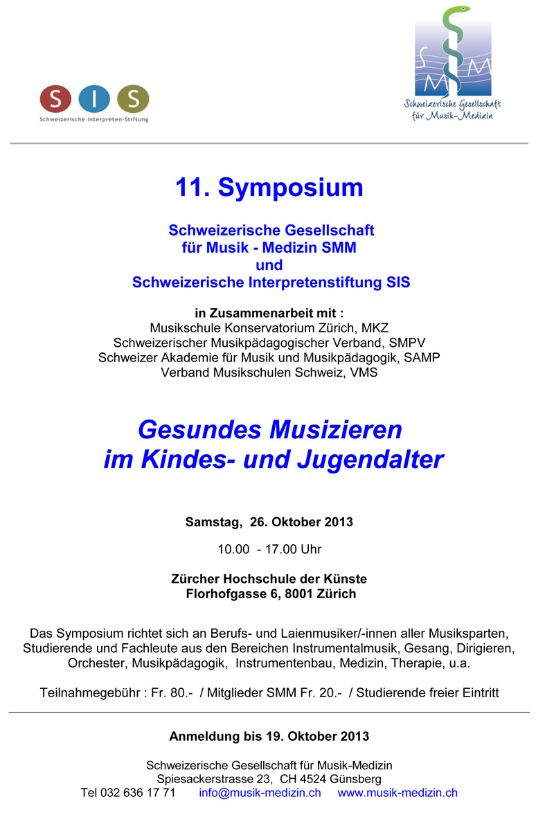Stress processing via the teeth
Anyone who has to balance physical and mental stress literally "bites their way through". Musicians, for whom the masticatory system is also an instrument of their profession, are particularly at risk.

-

- The functional circle of problems that can lead to occupational disability
The extremely high physical and mental demands of the music profession have reached a level that can go far beyond that of a top athlete. The perfectionism of "clinically clean" CD recordings, which has often become the measure of all things today, leaves little room for individual idiosyncrasies. Recordings in the recording studio are polished up with the help of editing techniques and post-processing so that they create the illusion of perfection that no performer is able to achieve in real performance. This ideal of reproduction has become a great burden. Individual performance can be scrutinized and puts performers at a disadvantage. Added to this is the fact that the competitive pressure to fill musical positions has steadily increased in recent decades. The pressure can leave internal traces that are not immediately visible to the outside world. They usually manifest themselves indirectly in moods, dissatisfaction and ultimately despair, which those affected experience themselves as "having to bite through".
Tension and cramps ultimately manifest themselves in psychosomatic diseases of the organs, functional disorders of the musculoskeletal system and malfunctions of the masticatory system. Psychologically induced malpositions of the body are also stabilized by teeth grinding and clenching and vice versa.
The importance of the masticatory system
The masticatory system plays a central role in the path to occupational disability: Non-blowers compensate and stabilize themselves via the occlusion. Blowers who cannot stabilize the mouthpiece via the rows of teeth shift the tension directly into the motor organ. How does the specialist recognize the involvement of the masticatory system in the many psychological symptoms? It helps to look at the patient's medical history (anamnesis). What stresses, worries, hardships and helpless therapies have those affected already undergone? Which symptoms occur when? The dentist also analyzes the functions of the masticatory system clinically and with analyses using dental models in the masticatory computer (articulator). An interdisciplinary orthopaedic specialist will prepare a functional assessment of the musculoskeletal system. A physiotherapist or psychotherapist can also be helpful in some cases.
We discuss the results on an interdisciplinary basis. This results in a targeted treatment plan. This can include: mental training techniques, physiotherapy, postural corrections without and with instruments ("no overloading without incorrect loading"), bite compensation using selectively constructed occlusal splints to relax the masticatory and musculoskeletal system, harmonization of the bite by removing incorrect contacts or dental reconstruction measures for malocclusions and/or missing teeth (dentures, veneers, implants, crowns).
Accidents require special measures
Accidents - soft tissue injuries to lips and cheeks or tooth fractures and tooth loss due to external influences - can suddenly lead to occupational disability. They require a cautious approach. The physiological changes can be accompanied by psychological impairments. This applies to whiplash injuries, for example. The fateful blow to the neck causes pain and poor posture due to permanent psychological pressure. Those affected feel "a fist in their neck", adopt a forced posture and their intervertebral discs wear out. Permanent pain and occupational disability follow.
Musicians of all ages can be affected. We have developed our own programs for prevention - based on a musician study we conducted between 2001 and 2004 at the Bern University of the Arts on woodwind players: orthopaedic posture and movement analyses were carried out with and without the instrument in a sitting and standing position, as well as functional analyses of the masticatory organ. Treatment was required for around half of the musicians. This experience flows directly into our dental diagnostics and treatment.
Dr. med. dent. J. E. Lahme
Specialist for musician treatments
Schulgasse 18
A-6850 Dornbirn
Tel. 0043 5572 386 333 Fax DW -8
lahme@aon.at
www.zahnart.at








